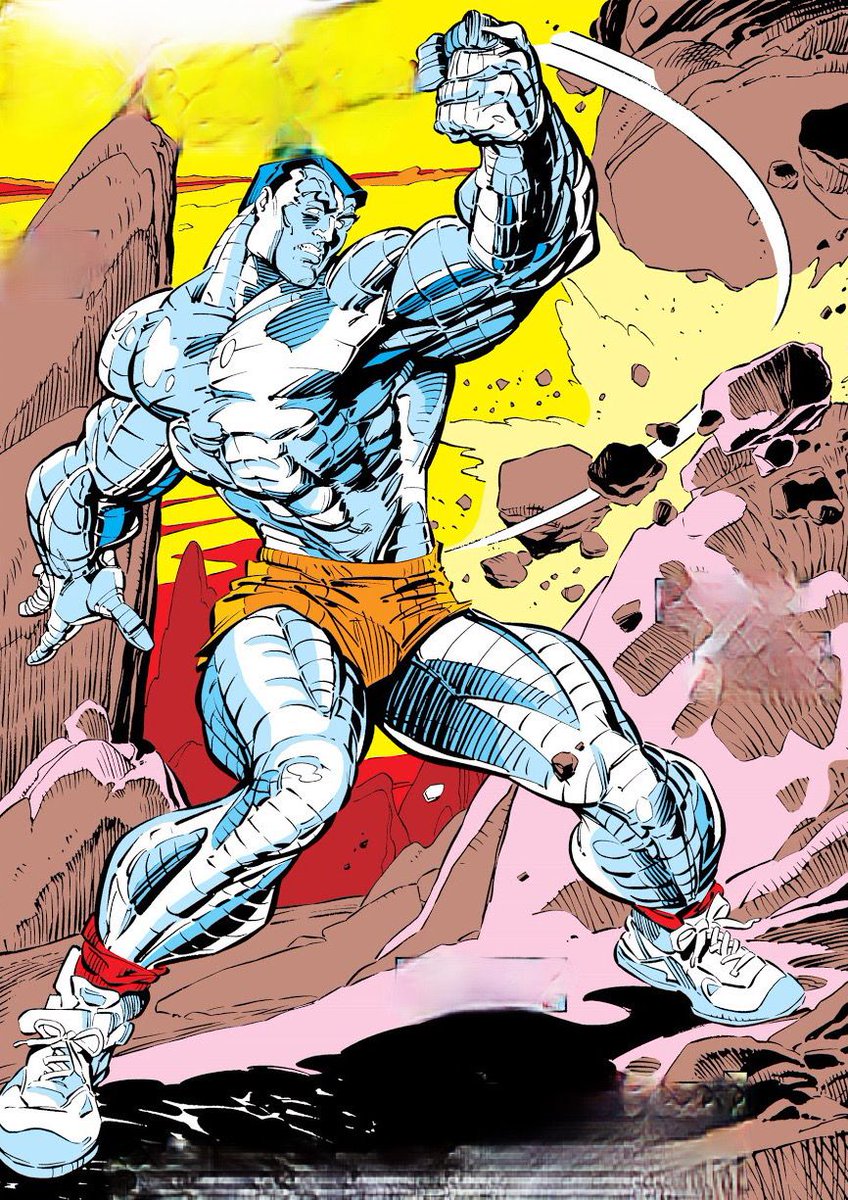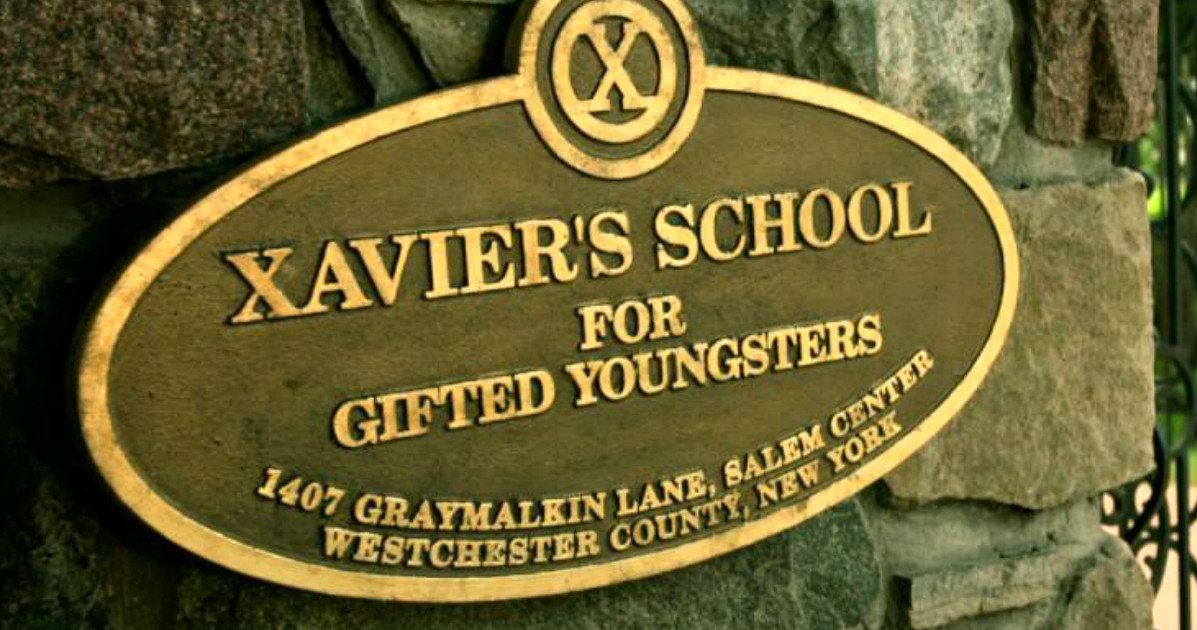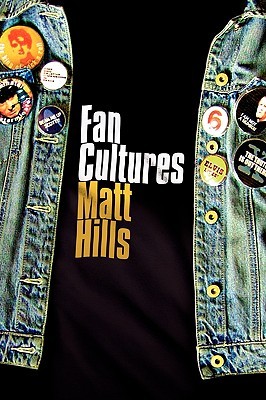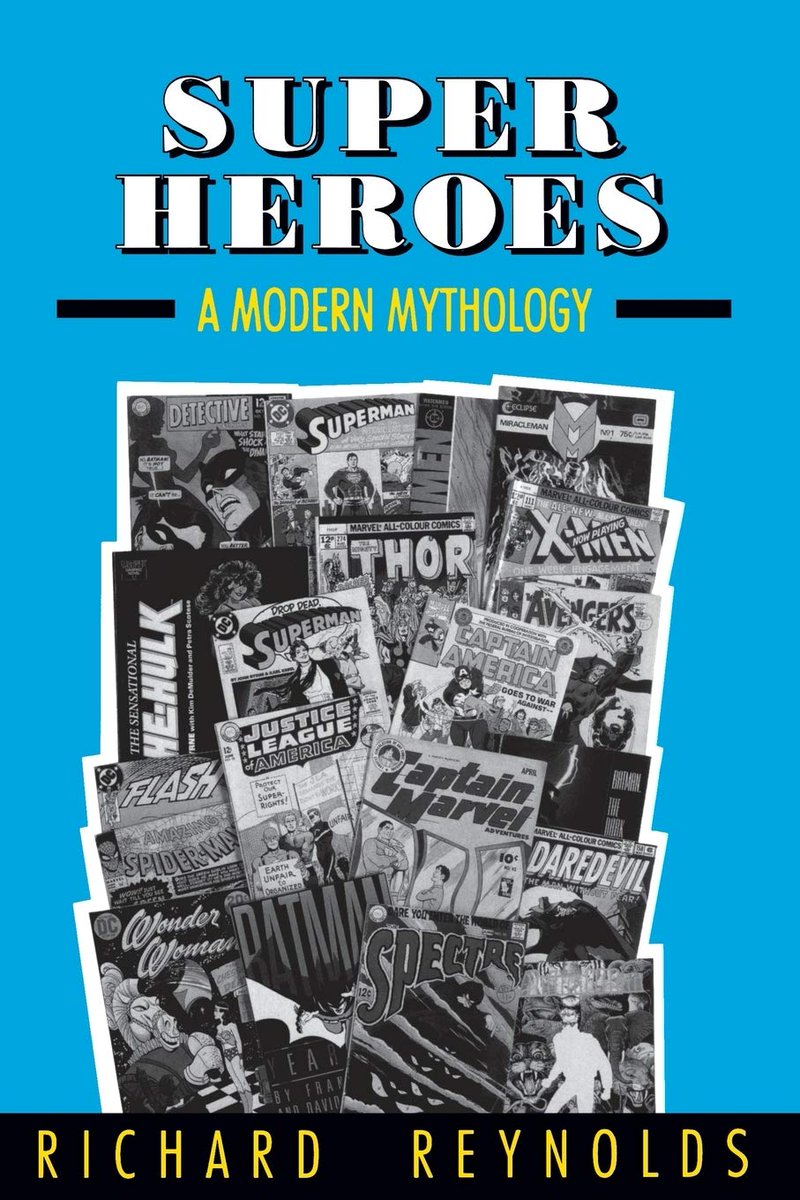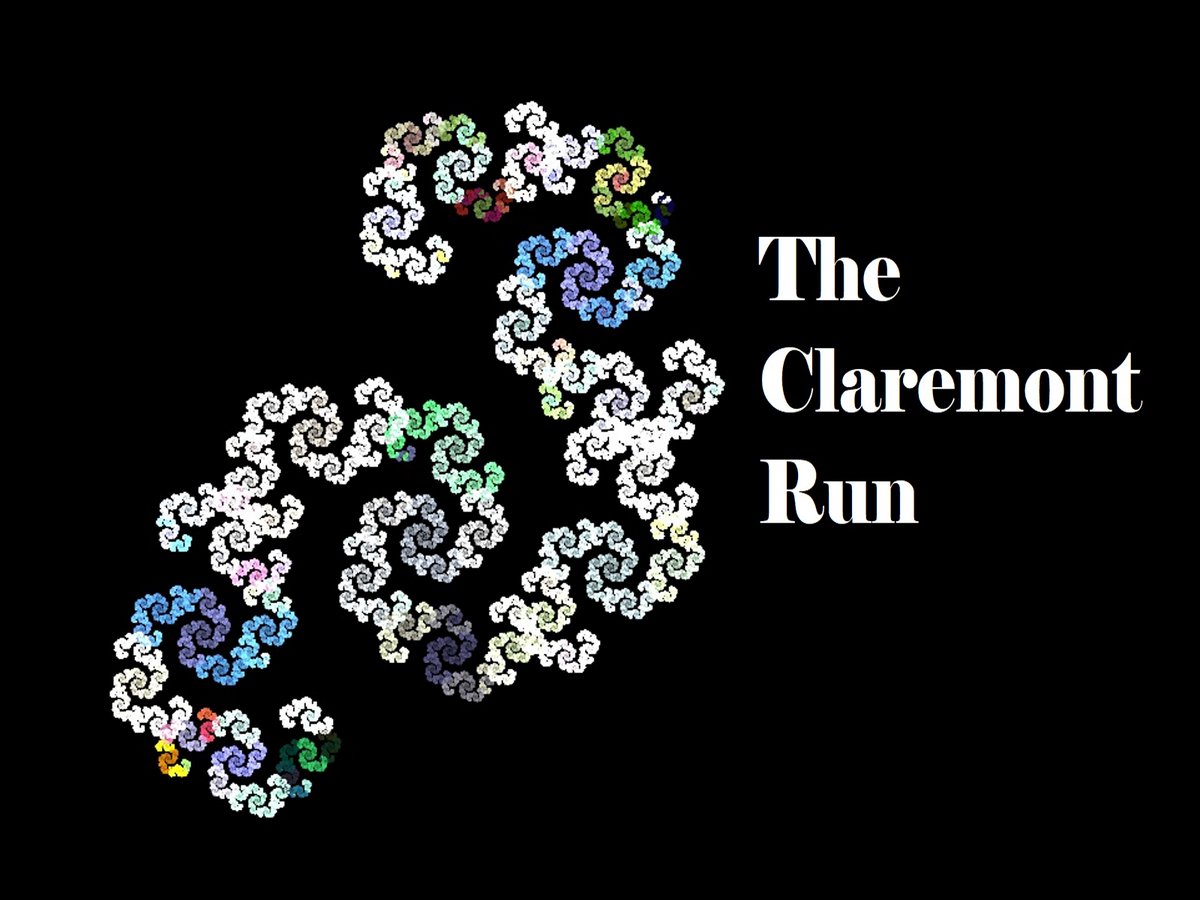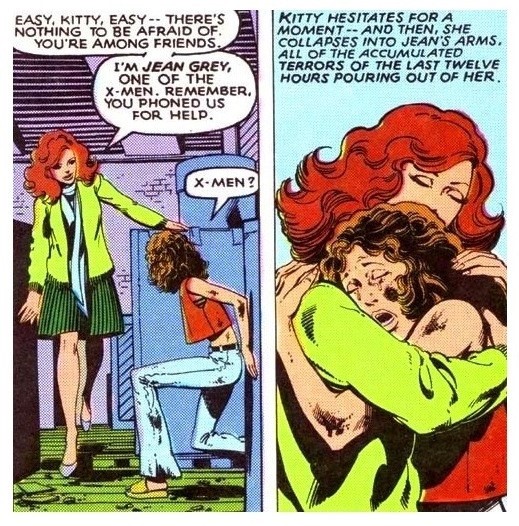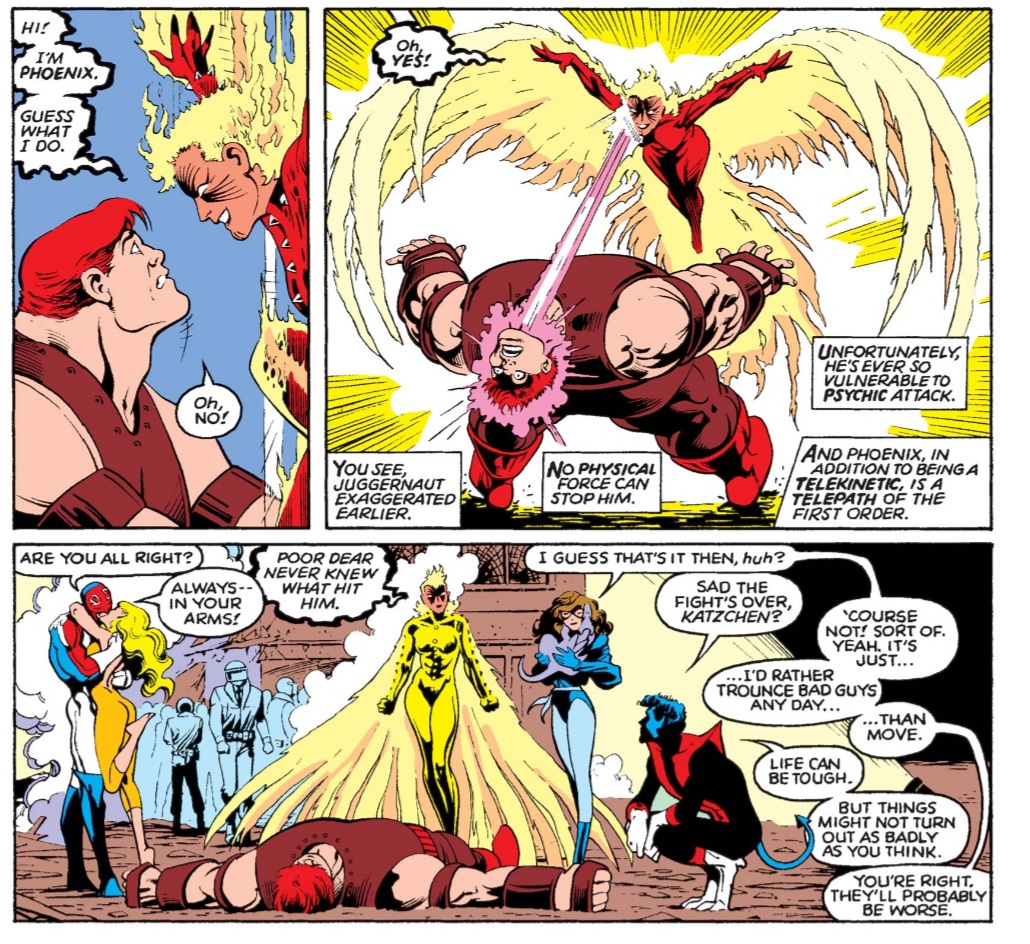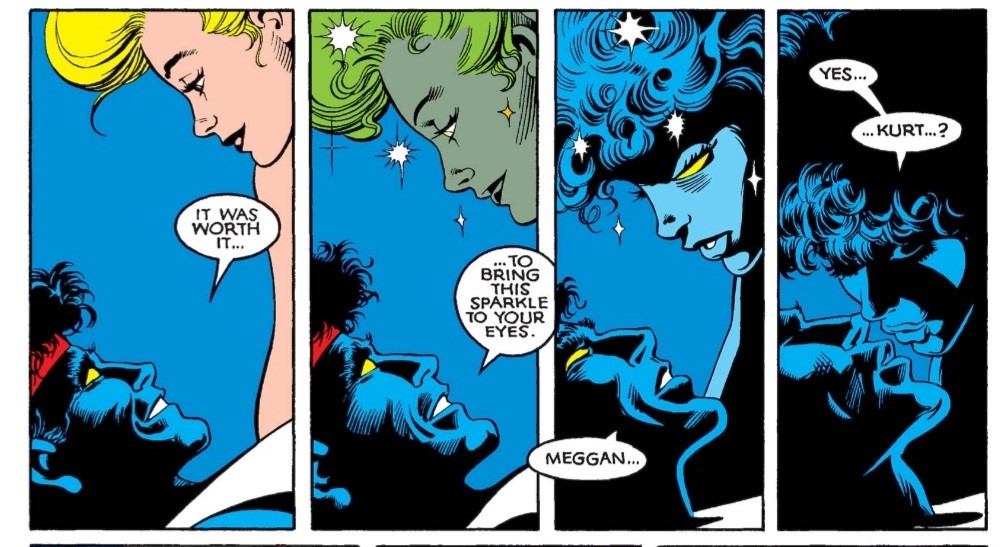
On multiple occasions, when Claremont provides insight into Logan’s romantic desires, he’s also conveying Wolverine’s desires for who Logan wants to be, and, in multiple scenes, love interests actually merge into one amalgamated person. #Wolverine #xmen 1/11 

In the Claremont/Miller Wolverine miniseries, Logan finds himself torn between Mariko and Yukio. As Yukio tries to seduce him, her face actually shifts to that of Mariko in Logan’s perception, and he subsequently refuses Yukio’s advances. 2/11 

We’ve discussed before how Claremont’s notebooks specifically reveal a plan by which Mariko and Yukio represent different life-paths for the character - personifications of his own opposing values and ideals for self-definition. 3/11 
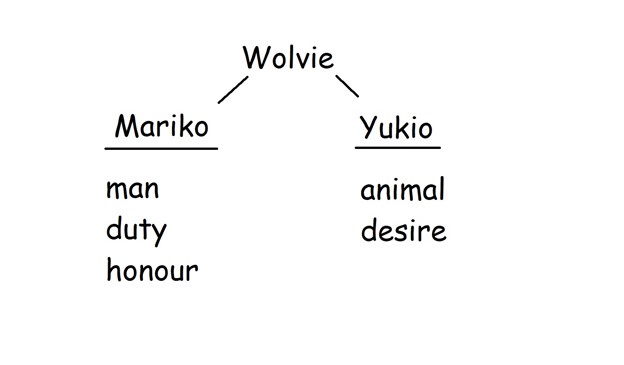
Though not the healthiest way to live (you should never place this symbolic burden on your partner), this is a very common narrative strategy with roots in a wide number of classic stories ranging from the Aeneid to Archie comics. Your choice of partner = your choice of self 4/11 
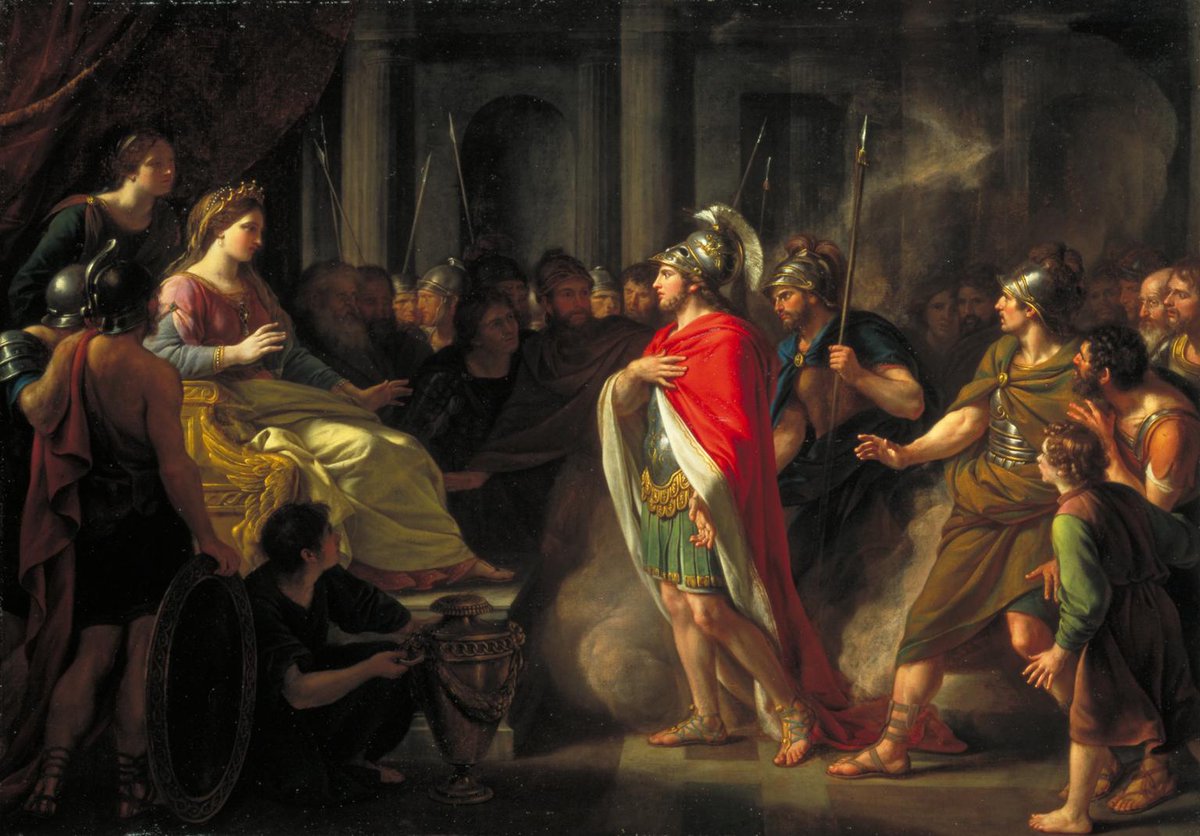
In the back half of the run, as Logan’s physical and mental health begin to decline, he twice sees visions of amalgamated love interests. 5/11 
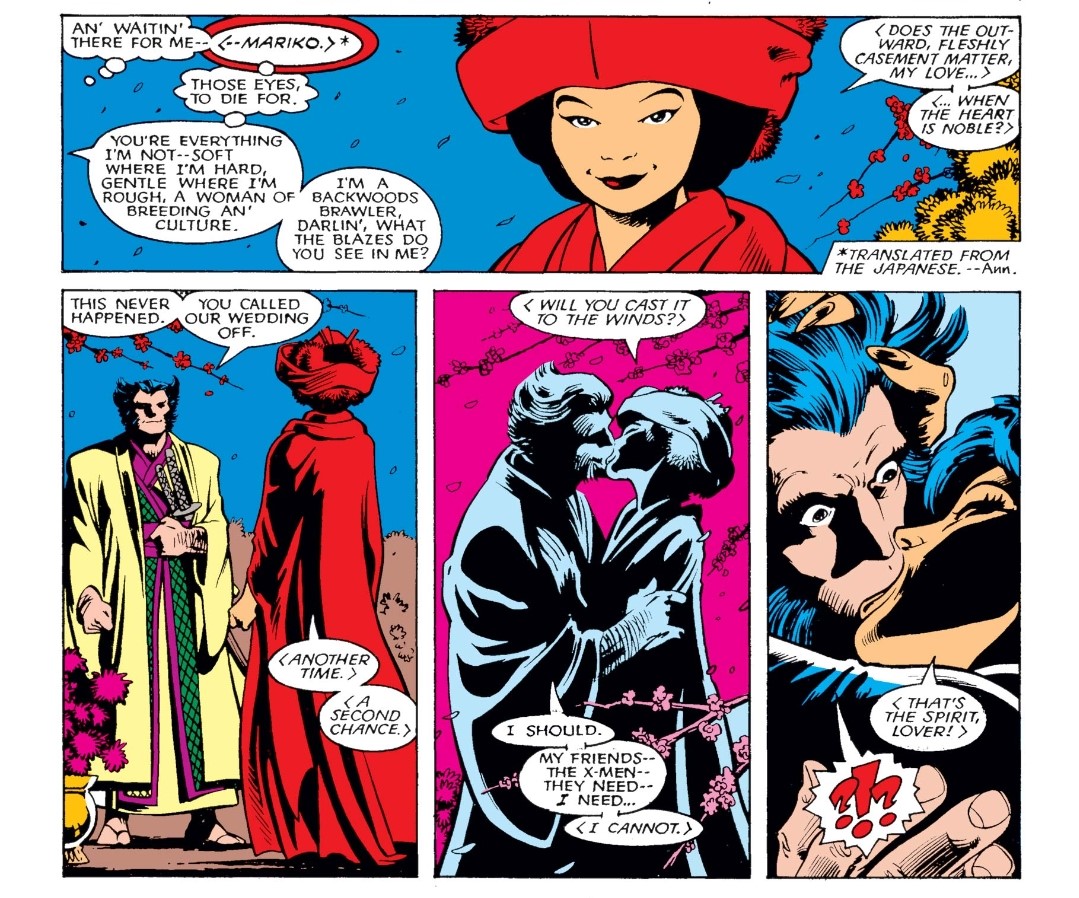
The first occurs in the deeply revelatory character study that is UXM Annual #11. Logan first sees Mariko, but when he reflects upon their incompatibility, she is transformed into someone more suited to his lifestyle. Not surprisingly, this involves donning Yukio’s jumpsuit. 6/11 

In the aftermath of the Outback era, Logan finds himself tortured at the hands of….The Hand, with Psylocke coordinating a telepathic attack that involves taking different forms of Logan’s loves, before ultimately just combining them into one in an effort to appeal to him. 7/11 

Interestingly, this narrative thread would actually be picked up in the movie X2 with a famous scene of Mystique taking the forms of different women as part of her seduction/indictment of Logan. Thus, the symbol seems to extend beyond just the comics . 8/11
What, though, does it mean? If we extend the initial metaphor from the Wolverine mini (that different women represent different life paths), then the repeated amalgamation of them in Logan’s mind can be seen to reflect a sort of identity crisis. 9/11 

Just as no particular woman is “the one” for him, no particular life-path is seemingly viable. Logan doesn’t want to be wholly civilized or wholly primal, wholly X-Man/wholly Ronin. He’s torn, rudderless, and that lack of vision might reflect (or accelerate) his decline. 10/11 

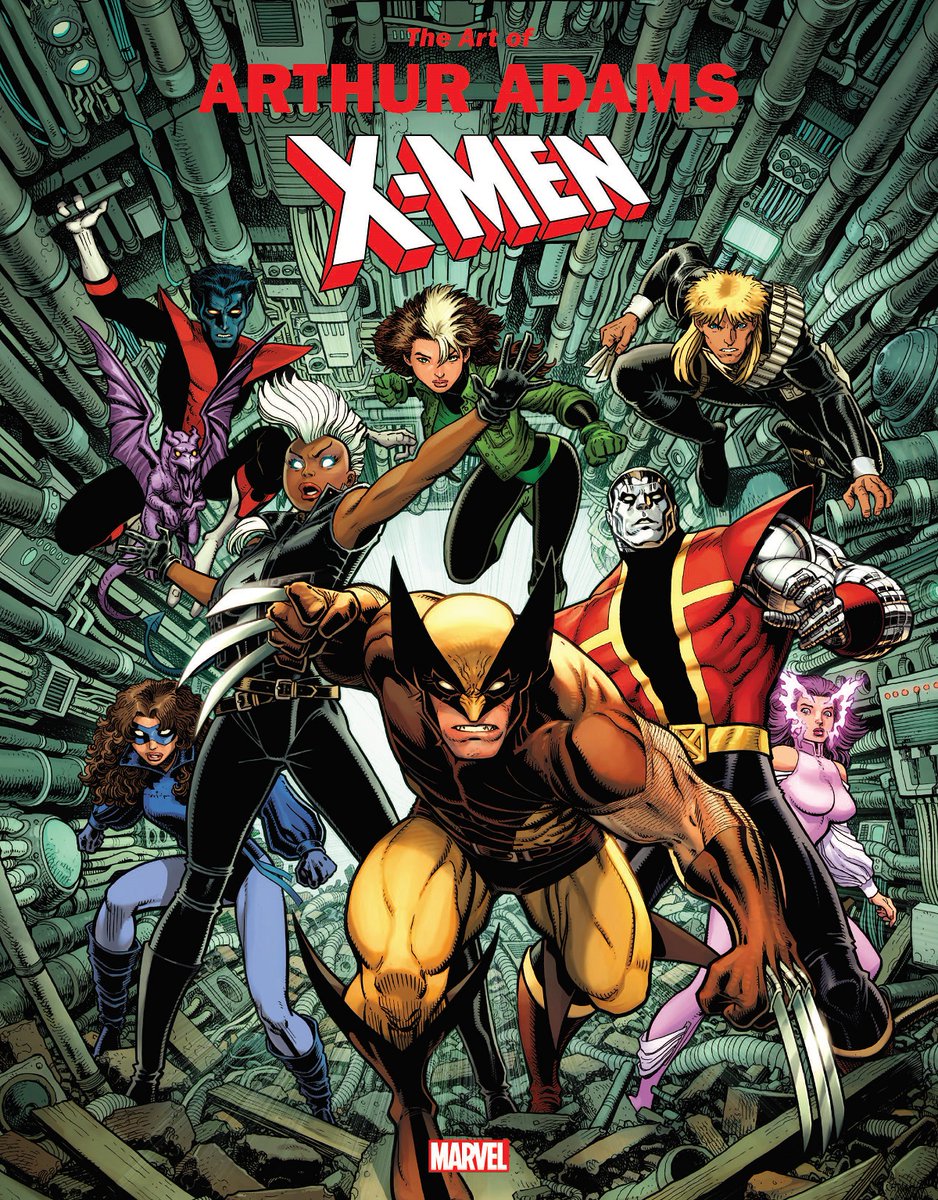
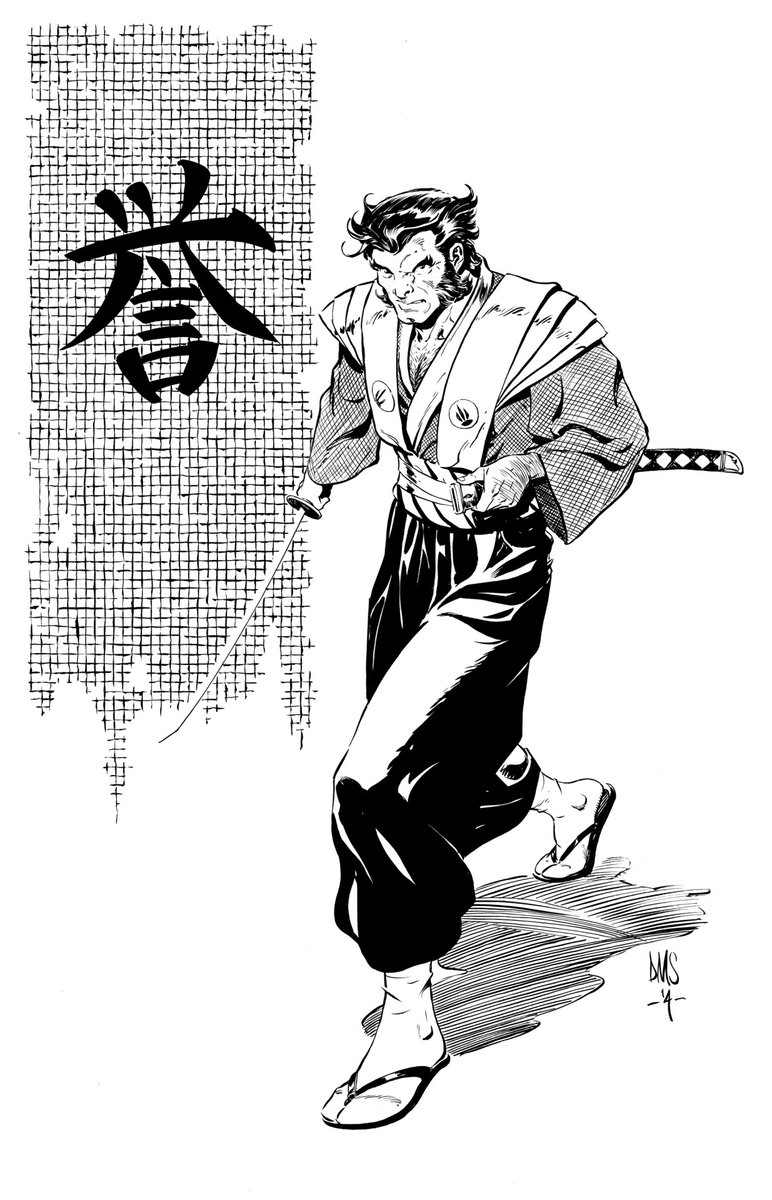
It’s again a small detail that reveals its greater potential meaning in C’s storytelling through patterned repetition, but it offers some insight into Logan’s state of mind during this difficult period for the character, and helps explain a bizarre recurrence in the story. 11/11 

• • •
Missing some Tweet in this thread? You can try to
force a refresh







